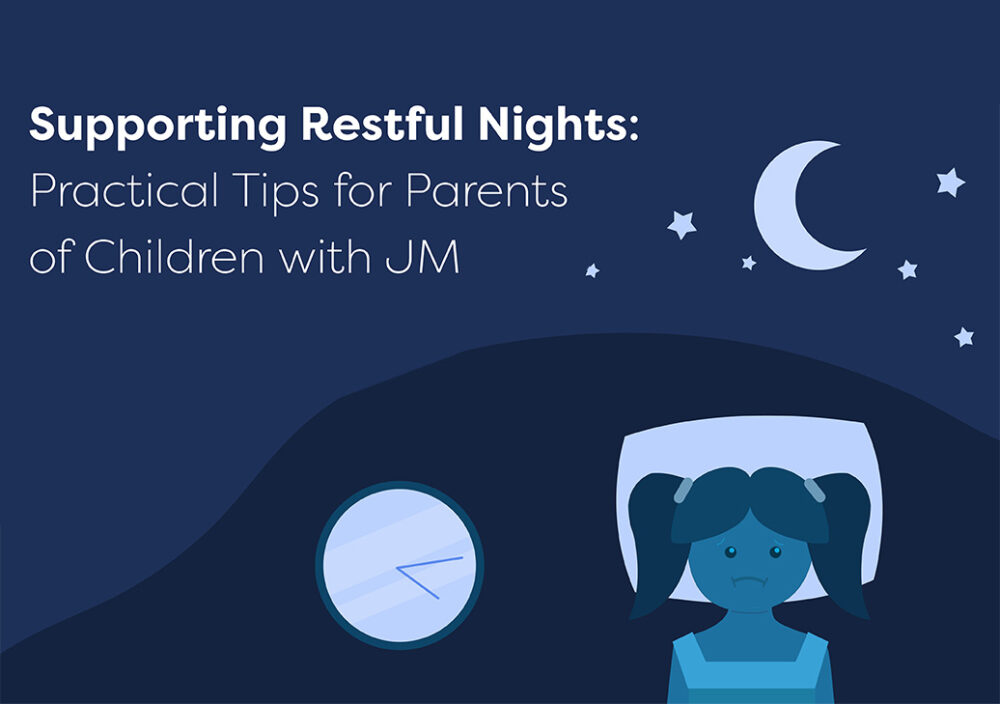One common issue that we hear about from our families is that after diagnosis their child has trouble falling asleep or staying asleep. This can be due to a variety of factors including discomfort, pain, worry, or fear. Corticosteroids and other JM treatments can also interfere with sleep.
Below we have shared some sleep tips from JM parents.
1) Have your child get plenty of exercise and eat nutritious foods. Dr. Brian Feldman recently spoke to Cure JM parents and stressed the importance of exercise, healthy foods, and sleep for our JM children. They all go hand in hand in helping our children to fight and recover each day. https://www.curejm.org/ask-the-doc-why-exercise-and-nutrition-are-important-in-jm/
2) A doctor might recommend a sleep aid. Some pediatricians recommended giving a small dose of melatonin to help our little one settle down. Melatonin is over the counter and safe to use once you have consulted with your child’s doctor.
3) If your child does receive steroids, consider discussing with your child’s physician if it might make sense to give the steroids in the morning. Steroids can contribute to difficulty sleeping, and some families find that giving steroids in the morning can be beneficial to the child’s sleep. However, with steroids, it is very important that you never adjust your child’s dose or timing without discussing it with your child’s physician.
4) Help your child learn to meditate and manage their stress. Stress can often keep children awake at night and children may struggle with processing and voicing their anxieties. By teaching your child meditation or other breathing/relaxation techniques they should have an easier time falling back to sleep in the middle of the night.
5) Create a comfortable sleep environment. Everyone is unique in their sleep preferences, so try different things to find what your child likes best. My child likes to fall asleep to music, have a light white noise machine playing, twinkly stars as a night light, and be in a cool room with lots of stuffed animals and blankets. Other children may prefer a different kind of pillow or mattress. There are several wonderful podcasts that help with sleep (whether that might be a story, song, or noise). Try adjusting the temperature in the room as well.
6) Have a bedtime routine and a consistent sleep schedule. It can be helpful to have children go to bed at the same time each day to help regulate their body’s internal clock. Along with this schedule, having a routine of a warm bath (perhaps with epsom salts or relaxing bath oils), reading books, applying soothing lotions, or relaxing exercises might be useful. Avoiding television and electronics before bed is also important as blue light does not help with sleep. Another great thing to add to the bedtime routine are Occupational Therapy sensory calming activities, such as: the rock and roll, blanket swinging, and rowing and swaying.




